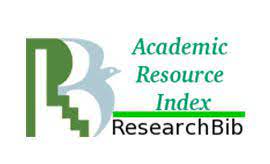MEANS OF IMPLEMENTING PSYCHOLOGICAL AND PEDAGOGICAL SUPPORT FOR THE DEVELOPMENT OF STUDENTS’ SKILLS TO SEARCH FOR IDEAS DURING SCIENTIFIC AND RESEARCH ACTIVITIES
DOI:
https://doi.org/10.51707/2618-0529-2023-26-01Keywords:
scientific and research activities of students, technical creativity, creativity, psychological inertia of thinking, creative imagination, set of practical tasks.Abstract
The article provides the author’s solution to the problem of providing psychological and pedagogical support to students during their scientific and research activities. The annual All-Ukrainian competition-defense of the Small Academy of Sciences is designed for children of teenage and youth age, aimed at students’ development and presentation of their creative projects. Scientific and research activity in the field of technical creativity involves the formation of a high level of creativity of students precisely at the stage of posing a problem and finding ideas for its solution. This requires appropriate psychological and pedagogical support for young researchers. The article offers the author’s complex of practical tasks for the development of creativity (the ability to generate ideas in a certain field of science), in particular creative imagination, and the formation of the ability to manage the psychological inertia of thinking. This complex is the basis for the psychological and pedagogical support of students during their scientific and research activities and includes tasks: “Physical alphabet”, “Hidden possibilities of objects”, “Physical drawing”, “Create a device”, “Recognize an object”, “Physical analogy”, “Household analogy”. The given set of practical tasks is an effective means of developing students’ creativity. The use of this complex during the psychological and pedagogical support of scientific research activities helps students to combine the system of images of life experience and the results of their imagination, which, in turn, will be clues and a basis for the gradual formation of a bank of creative ideas of a young inventor. The complex of tasks can be applied both directly in lessons and during extracurricular activities of students (group classes, electives, “psychologist’s hours”, etc.). The tasks were developed and tested on the material from school physics, but a similar approach can be used on the example of other subjects.
References
Davydenko, A. A. (2007). Teoretychni ta metodychni zasady rozvytku tvorchykh zdibnostei uchniv u protsesi navchannia fizyky [Theoretical and methodological principles of the development of students’ creative abilities in the process of learning physics]. Extended abstract of Doctor’s thesis. Kyiv [in Ukrainian].
Moliako, V. O. (2007). Tvorchyi potentsial liudyny yak psykholohichna problema [Human creative potential as a psychological problem]. Psykholohiia i suspilstvo — Psychology and society, 4, 6–10. Ternopil [in Ukrainian].
Muzyka, O. O. (2006). Psykholohichni peredumovy rozvytku tvorchoi aktyvnosti u pidlitkovomu vitsi [Psychological prerequisites for the development of creative activity in adolescence]. Zdibnosti, tvorchist, obdarovanist: teoriia, metodyka, rezultaty doslidzhen — Abilities, creativity, giftedness: theory, methodology, research results. (Pp. 90—118). Zhytomyr [in Ukrainian].
Karpenko, N. A. (2016). Psykholohiia tvorchosti [Psychology of creativity]. Lviv [in Ukrainian].
Rybalka, V. V. (2016). Slovnyk iz psykholohii ta pedahohiky obdarovanosti i talantu osobystosti: terminolohichnyi slovnyk [Dictionary of psychology and pedagogy of individual giftedness and talent]. Kyiv, Zhytomyr [in Ukrainian].
Vidnichuk, M. A. (2004). Tekhnolohii tekhnichnoi tvorchosti [Technologies of technical creativity]. Kyiv [in Ukrainian].
Bezhenar, A. A., & Yankivska, H. A. (2017). Rozvytok kreatyvnosti yak sposib formuvannia kompetentnoi osobystosti v zahalnii serednii ta profesiinii osviti. [Development of creativity as a way of forming a competent personality in general secondary and professional education]. Elektronne naukove fakhove vydannia «Narodna osvita» — Electronic scientific publication «Public education», 1 (31). Retrieved from https://repository.kristti.com.ua/handle/eiraise/997 [in Ukrainian].
Tarara, A. M. (2019). Naukovo-tekhnichna tvorchist [Scientific and technical creativity]. Kyiv [in Ukrainian].
Vazhynskyi, S. E., & Shcherbak, T. I. (2016). Metodyka ta orhanizatsiia naukovykh doslidzhen [Methodology and organization of scientific research]. Sumy [in Ukrainian].
Shvai, R. I. (2013). Rozvytok kreatyvnosti uchniv zahalnoosvitnikh navchalnykh zakladiv u protsesi navchannia fizyky [Development of creativity of students of general educational institutions in the process of learning physics]. Extended abstract of Doctor’s thesis. Kyiv [in Ukrainian].
Downloads
Published
How to Cite
Issue
Section
License
Copyright (c) 2023 Scientific notes of Junior Academy of Sciences of Ukraine

This work is licensed under a Creative Commons Attribution 4.0 International License.













